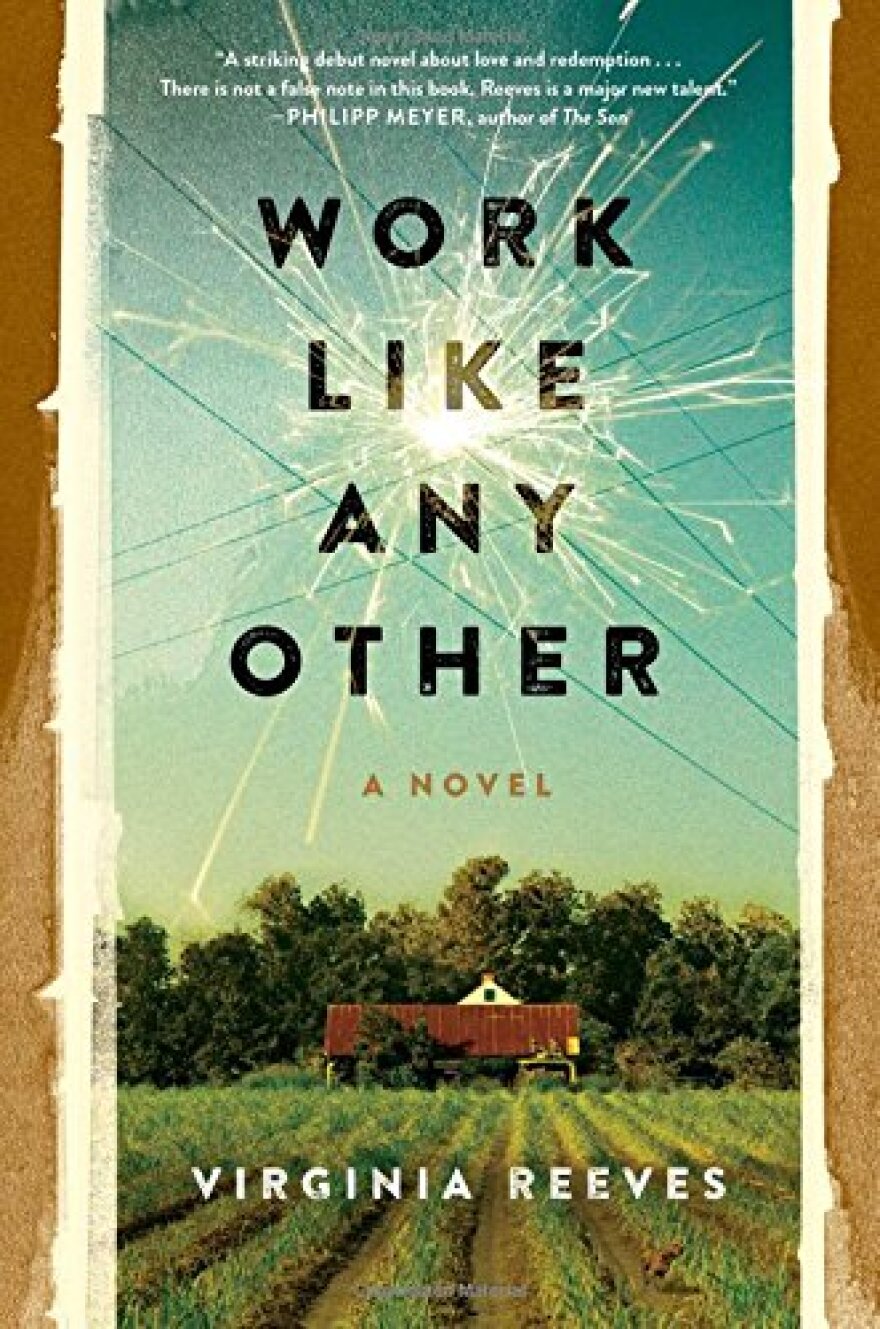“Work Like Any Other: A Novel”
Author: Virginia Reeves
Publisher: Scribner
Pages: 260
Price: $25.00 (Hardcover)
Virginia Reeves has spent most of her life in Montana and now lives in Austin, Texas, where she earned her degree at the Michener Center for Writers. While there, Reeves decided to work on a historical novel. She had visited often at her grandparents’ place in Lillian, Alabama, and become interested in Alabama history, especially some unsavory but striking aspects such as Kilby Prison and the convict leasing system, a modern form of slavery still in place in the 1920s.
Reeves’ scenes are convincing. The details of life at the time ring true. The characters in this novel, white and black, kindly and cruel, are strongly etched, unusually so for a first novel.
Roscoe Martin is 30 years old, married with a new son, working as a farmer on land his wife, Marie, has inherited. He hates it. The farm is failing; his wife is miserable, and Roscoe is no farmer.
Roscoe is an electrician, one of the first. He had worked at Alabama Power’s new generating plant on the Coosa River and believes, passionately and correctly, that electrification will change the rural world. Many disagree, suspicious of electric power, seeing it as a kind of dangerous sorcery. Roscoe reads books by the electrical pioneer Michael Faraday and actually understands electrical power and its potential.
Using his skills, Roscoe runs an unauthorized line to his house and barn. He is stealing electricity, true, but as he says, only a drop from the lake. Much more is lost just in transmission. He uses the “stolen” power to run machinery, especially a corn thresher, and this tips the balance; the farm turns a profit.
Unfortunately, an Alabama Power employee checking out this unauthorized, suspicious line is accidentally electrocuted and Roscoe is sentenced to 20 years in Kilby, Alabama’s new prison.
Reeves uses as epigraph a passage from a 1922 work, “Social Progress of Alabama,” which touts the virtues of Kilby: The new prisoner will be examined, diagnosed in all departments, physical and mental, treated for any ills, given meaningful employment and “restored to society, if possible, a self-respecting, upright, useful and productive citizen.”
Bold and essentially empty words. Kilby is a hell, six prisoners to a cell, inmate violence only matched by the guards’ sadism. Roscoe is viciously stabbed by a cellmate, clubbed and maimed by a guard.
The general fear of electricity is not diminished when the state builds, at Kilby, Big Yellow Mama. Despite his expertise, Roscoe is not allowed to help construct Alabama’s spanking new electric chair.
The chapters in Kilby are done in the first person, and are chilling in their detail. A literate man, Roscoe works at the prison dairy and the library, and finally works with the hounds that are used to catch escaping prisoners. Conflicted, he finds himself strangely proud of how good the dogs are. Roscoe is a proud workman who always wants to do the job right.
His suffering is overshadowed by that of his black tenant farmer and friend Wilson, who was persuaded to help Roscoe set up the power lines. Wilson is sent to the mines and, in an explosion, barely escapes with his life.
Roscoe’s long sentence is not his only pain. His wife, Marie, cannot cope. Shutting down emotionally, she never writes and never visits with their son Gerald. It seems Roscoe is to lose everything.
It would be possible to sympathize with Marie, but I did not. Wilson, who has unimpeachable reasons to be angry at Roscoe, is the hero in this tale. As an African-American in 1930s Alabama, Wilson understands injustice. Although he suffered terribly himself, he and his wife can still forgive Roscoe, welcome him home and help him start a new life after prison.
Don Noble is host of the Alabama Public Television literary interview show “Bookmark with Don Noble.” A shorter form of this review was originally broadcast on Alabama Public Radio.


